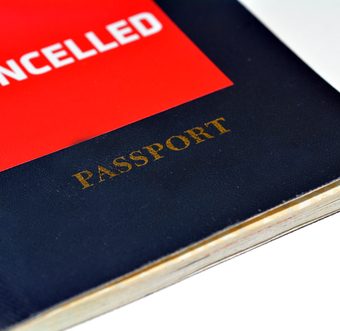New U.S. Passport Rules for Child Sex Offenders [2023]
Updated As of read 2 min

Once you are a convicted child sex offender, your passport gets revoked. Last year, the Department of State issued a new law that revokes a child sex offender’s passport. However, anyone convicted of such a crime can still get a passport. One crime that may disqualify an applicant from obtaining a passport is a conviction for international drug trafficking. Otherwise, a convicted felon can still get a passport.
Child Offender Registry
A convicted child sex offender’s name is added to a registry. Registries are accessible through the FBI website. You can search by state, U.S. territories, and tribes. For a person to land on the registry, he or she is found guilty of crimes such as molestation of minor, sexual conduct with a minor, kidnapping a minor, engaging in lewd acts in the presence of a minor, and viewing or sharing child pornography. Also, if you are a teen and have sex with another teen, you can be labeled as a sex offender. Posting nude pictures of yourself online, if you are underage, can also label you as a sex offender.
Child Sex Offender & a Passport
The Department of State notifies a convicted child sex offender by mail of the revocation of his or her passport. The offender can still apply for a new passport; however, the document will contain a statement on the inside back cover. The statement reads “The bearer was convicted of a sex offense against a minor and is a covered sex offender pursuant to 22 United States Code Section 212b(c)(l).”
The issuance of the passport does not prevent the person from traveling to another country. However, it is up to the country to grant admission to a person with such a passport. If a person is convicted of sex tourism crimes, he or she is disqualified from getting a passport.
Megan’s Law
The law, in part was created from a crime committed by a sex offender. Megan’s Law is named after a 7-year old girl who was murdered by a sex offender in 1994. It was because of the crime; the sex offender registry was created and stored all the names of convicted individuals.
Applying for a Passport
You can apply for a passport by submitting the appropriate form and supporting documents. For a first-time applicant, complete Form DS-11. For an expired passport, complete Form DS-82 and a lost or stolen passport, complete Form DS-64 and DS-11.
Apply at a post office, county clerk’s office, courthouse, or library. The processing time is between 4 to 6 weeks and costs $130 plus $35 processing fee. You may request expedited service for an extra $60.00. The processing time is cut in half, and now you may get a new passport in 2 to 3 weeks.
For emergencies, visit a private expeditor or a regional agency. A private expeditor offers same-day or up to two weeks for a new document. A regional agency, only 26 in the United States, offers same-day service. You must provide proof of travel and emergency for approval. The cost for both services is way more than the price you will pay at the other locations.



